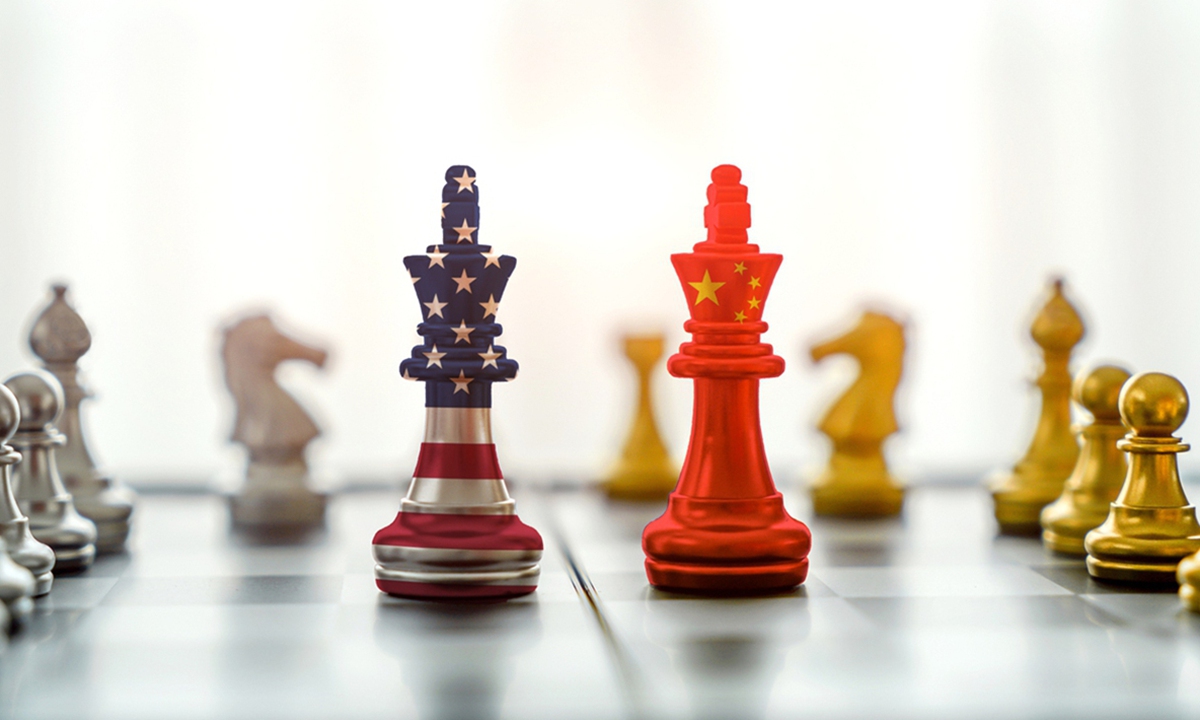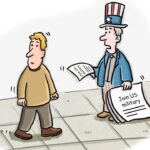Some anti-China lawmakers in the US have been prioritizing their political self-interest over the nation’s welfare, but businesses won’t dance along to their unreasonable “decoupling” push, Chinese experts said on Wednesday.
These remarks came after the US House Select Committee on China called for an aggressive “reset” on China economic ties with a 53-page report that proposes nearly 150 recommendations, ranging from imposing new tariffs on legacy semiconductors from China to further cutting off the flow of capital and technology between the two countries to revoking Permanent Normal Trade Relations (PNTR) with China.
Bilateral economic and trade relations have seen thawing signals recently after the China-US summit meeting in San Francisco, the US. But the latest bipartisan report issued by the US House committee highlighted the considerable influence of certain hawkish US politicians who jump out and push various anti-China bills from time to time, experts said on Wednesday.
It’s important to point out that their motives are not aligned with the interests of American businesses or consumers. Instead, their actions are purely motivated by personal or small-group political gains, aimed at grabbing headlines and fueling populism, Gao Lingyun, an expert at the Chinese Academy of Social Sciences, told the Global Times on Wednesday.
Cooperation between China and the US benefits both sides as well as the global community. However, these politicians are intended to jeopardize the interests of the US and the world for the sake of their personal political gains, Gao noted.
Li Yong, a senior research fellow at the China Association of International Trade, said that US politicians have reached a level of obsession where hyping anti-China sentiment seems to be the least risky move for them, while any other actions would likely draw attacks from the opposing party.
On one hand, this situation shows that the US doesn’t adhere to the free-market principles it has long touted. On the other hand, such actions, which defy fundamental economic principles, are unlikely to succeed at the end of the day, Li told the Global Times.
American businesses are acutely aware of the importance of the Chinese market. While politicians may create short-term disruptions, achieving complete “decoupling” is impossible and these enterprises will eventually navigate and find ways to mitigate any interference, experts said.
In recent years, reports have consistently revealed that the additional tariffs imposed by the US on China are predominantly borne by American businesses and consumers. US enterprises have been increasingly vocal about the losses and long-term risks incurred due to Washington’s “decoupling” practices.
A recent report from Oxford Economics estimated that raising tariffs by revoking China’s PNTR status would cause a loss of $1.6 trillion to the US economy and a loss of 744,000 jobs over a five-year period, according to media reports.
Meanwhile, the continuous breakthroughs achieved by Chinese technology companies affirm that Washington’s attempts to curb China’s technological progress are bound to fail, experts said.
Since the beginning of the year, top American business executives have been lining up to visit China, expressing their intention to strengthen cooperation with the Chinese market. In November, at the 6th China International Import Expo held in Shanghai, the number of US exhibitors hit a new record, with more than 200 companies showing up.
It’s worth noting that nearly all major US semiconductor companies, which have been facing the most significant pressure from Washington’s decoupling push, chose to participate in the expo, showcasing their cutting-edge products.
The US committee is obsessed with attacking and smearing China. It is biased and hostile and has no rationality to speak of. What they have said fully shows that some people in the US are attempting to politicize and weaponize trade and tech issues between China and the US.
“We firmly oppose this,” Mao Ning, a Foreign Ministry spokesperson, told a press briefing on Wednesday.
China-US economic and trade cooperation benefits both sides. There is no winner in a trade war or tariff war. Curbs and protectionism will only disrupt normal trade and destabilize industrial and supply chains. They do not serve the interests of any party, Mao said.
The US needs to earnestly respect the principles of market economy and international trade rules, and create a favorable environment for China-US economic and trade cooperation, rather than do the opposite, Mao urged.













